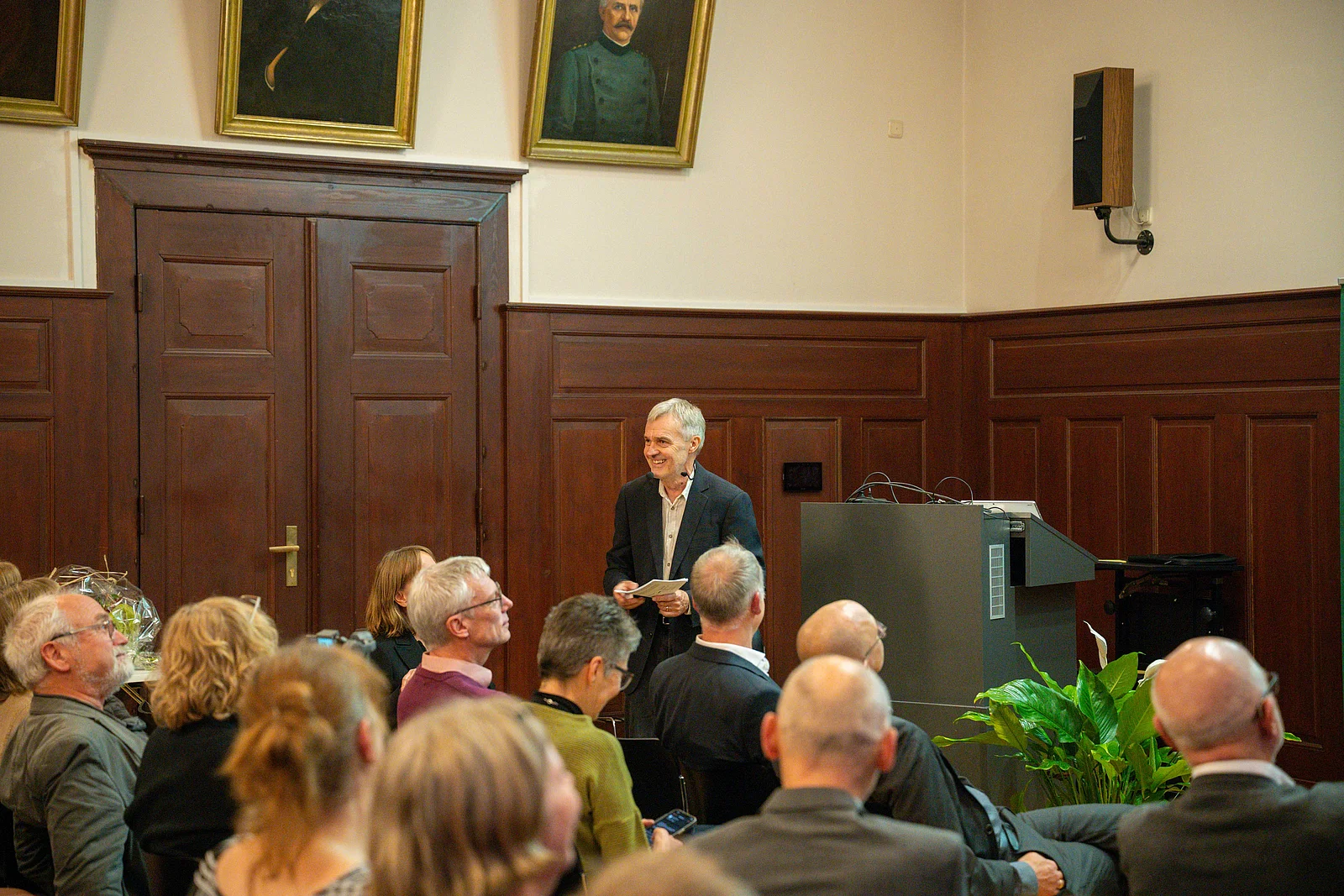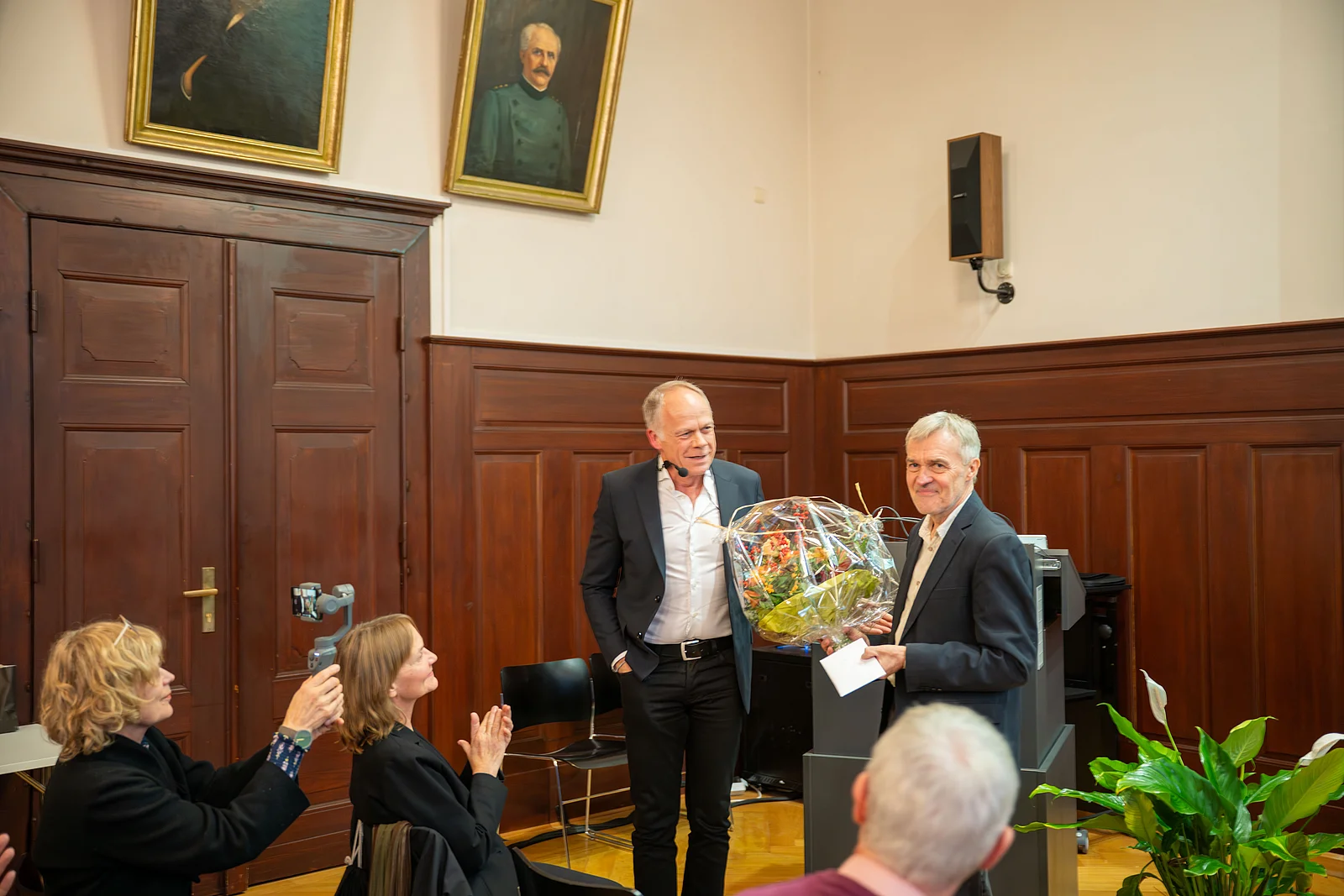Avenues and building culture - Prof Dr Jürgen Peters bids farewell
On 7 November, the Eberswalde University for Sustainable Development (HNEE) honoured Prof. Dr Jürgen Peters, who has played a decisive role in shaping landscape planning and regional development at the university for over three decades, with a ceremonial "Last Lecture" and a warm farewell to his retirement.


Jürgen Peters has been teaching and researching at HNEE since 1995 - initially on the Landscape Management and Nature Conservation degree programme, and later on the Bachelor's and Master's programmes in Regional Development & Nature Conservation (NaRegio). During this time, he supervised around 2,500 students and over 230 theses, was involved in 60 research and development projects and published more than 150 articles.
In his laudatory speech, Prof. Dr Jens Pape, Head of the Department of Landscape - Society - Economy, described the departing colleague as an "academic pioneer whose attitude, humour and collegiality have enriched the cooperation at our university in a special way".
His scientific work ranges from cultural landscape development, village and regional planning to renewable energies, garden culture and building culture. His research work on avenues, which he saw as cultural, ecological and aesthetic lifelines of the landscape, was particularly influential. As part of the DBU-funded project "Avenues and rows of trees along roads and paths", he and his colleagues developed a nationally recognised guide to protecting and replanting these landscape elements in 2022.
Peters has also been involved in numerous specialist committees - such as the Baukultur network of the Brandenburg Ministry of Infrastructure and Regional Planning, the Competence Centre for Street Trees and Avenues (KOSTBA), the Brandenburg Building Culture Association and the German Society for Garden Art and Landscape Culture (DGGL) - as well as in international collaborations, including in Finland, Hungary and Albania.
Prof Dr Jürgen Peters twice headed the faculty as Dean, where he was appreciated for his calm, humorous manner. As a scientist, he saw the small in the big and characterised the university with his attitude and humanity.
His last lecture was entitled "Hermits, emeriti and avenues" - a fitting end to an academic avenue on which he left - and will certainly continue to leave - many traces.